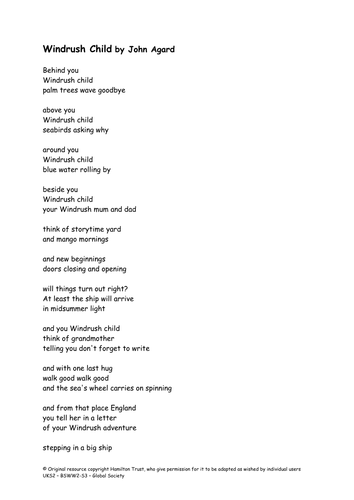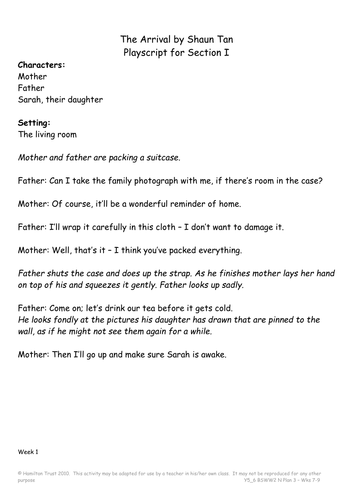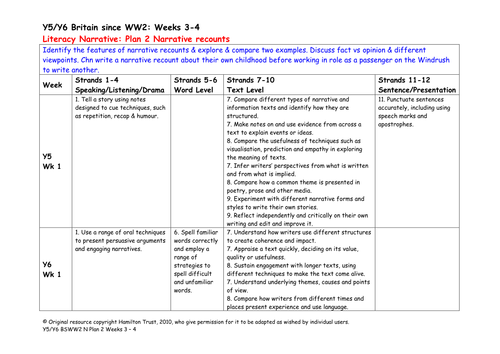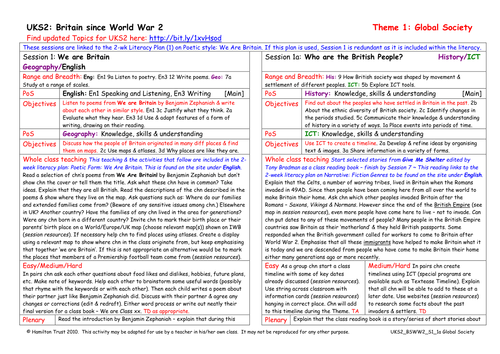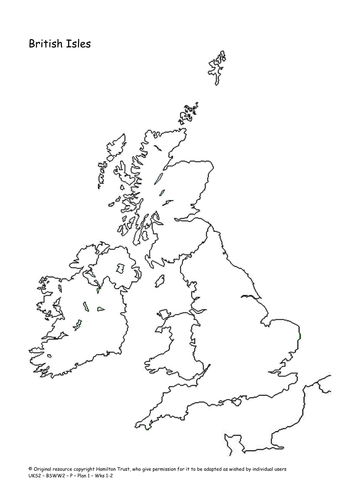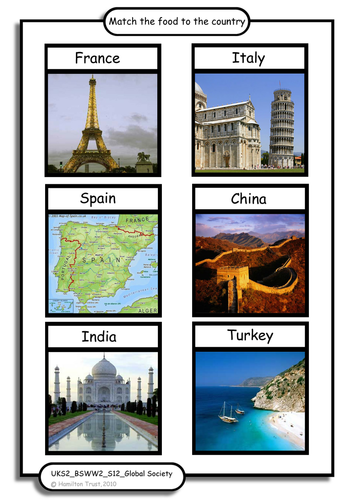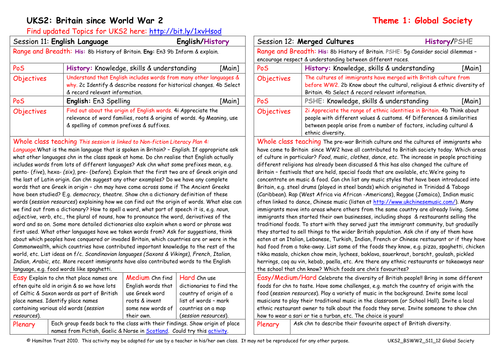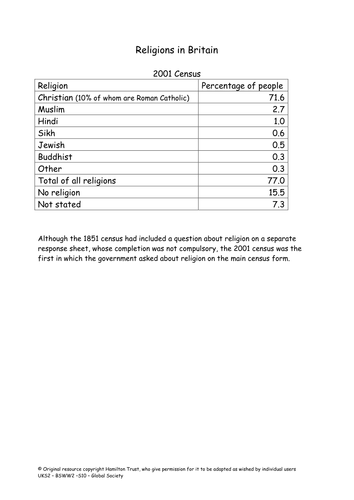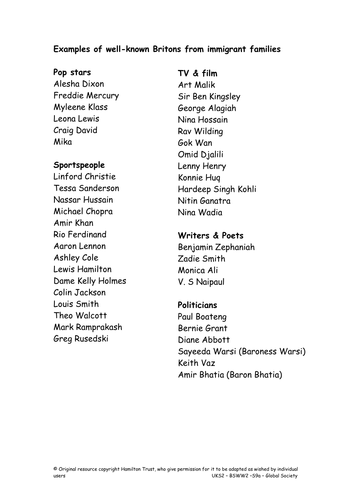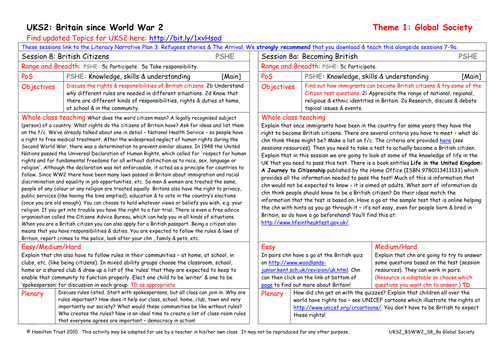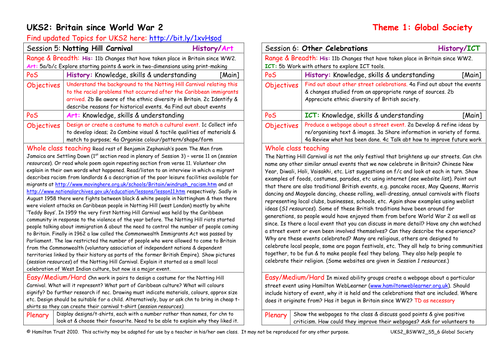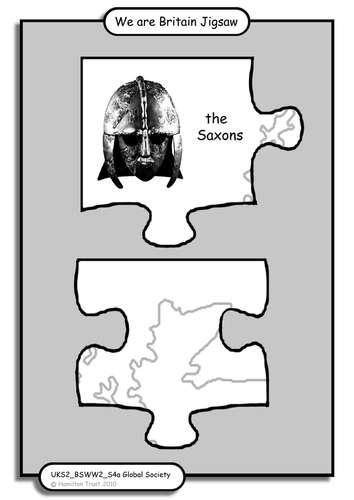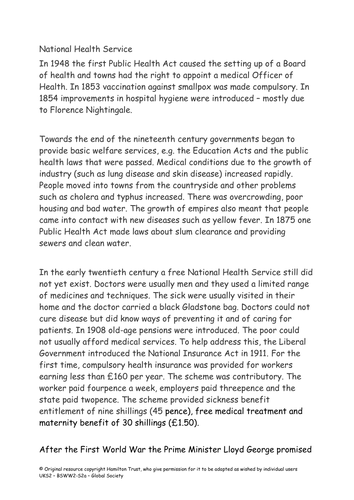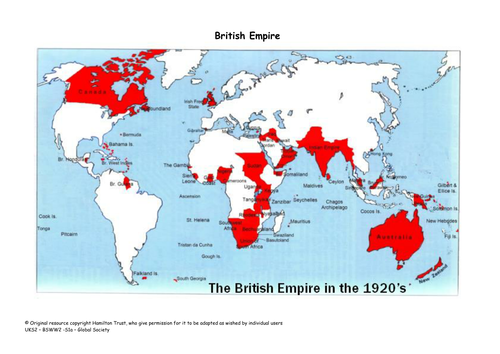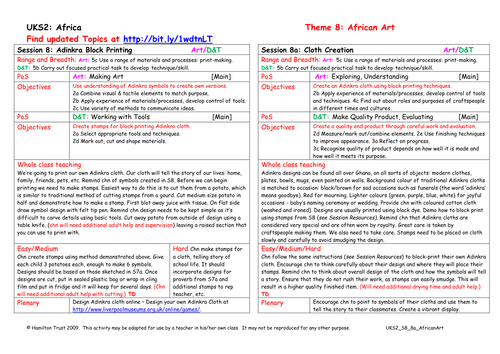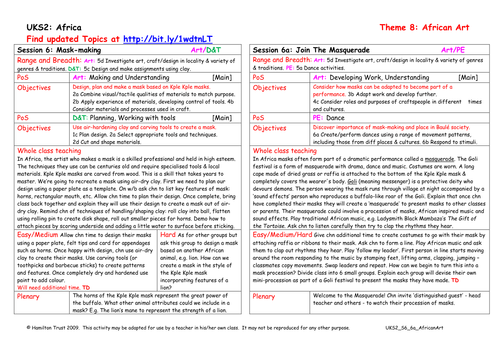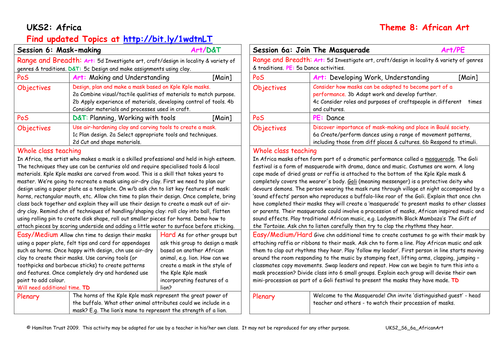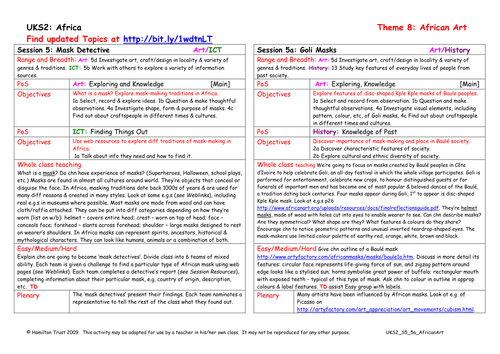
397Uploads
10041k+Views
11644k+Downloads
All resources

Windrush Migrants
Listen to a poem written by an immigrant on the SS Windrush. Discuss how he felt about leaving his home and the reactions of some British people. Children compare the climate in the Caribbean with that of Britain and write imaginary letters home from a migrant.

Windrush
Read the poem Windrush Child by John Agard and get children’s reactions. Give brief history of SS Windrush’s journey to Britain in 1948. Children either mark the journey on a map or answer questions about photographs to do with Caribbean immigration on the Windrush.

Refugees and human rights weeks 7 - 8
Consider different genres then read a variety of stories about refugees and asylum seekers. Children summarise stories and write sequels and playscripts based on stories they have read.
Finish with a This is Your Life programme for one of the characters.

Recounts Weeks 3 - 4
Identify the features of narrative recounts and explore and compare two examples. Discuss fact vs opinion and different viewpoints.
Children write a narrative recount about their own childhood before working in role as a passenger on the Windrush to write another.

We Are Britain KS2
Read some poems from We are Britain by Benjamin Zephaniah and ask what these children have in common. Discover where in the world children in the class came from originally – locally, elsewhere in Britain, another country? Write poetry about each other in BZ style.

Poetic style Weeks 1 - 2
Read and analyse poems from Benjamin Zephaniah’s We are Britain. Discuss the style, language and content of his poems and investigate rhymes. Children write their own poems in the style of BZ’s The British and Body Talk and a fact file about the poet.

Merging Cultures
Celebrate the diversity of British people! The cultures of immigrants from many countries who have come to Britain since WW2 have been merged with the pre-war British culture to provide a great variety of foods, music, clothes and dance. Explore and enjoy!

English Language
The English language contains words from many different languages. Children investigate old Saxon and Celtic words used in British place names, Greek prefixes and word roots that are used in English words and words that have been introduced from other languages.

Multi-Faith Britain
One of the important changes in British society since WW2 has been the rise in numbers of people with different religious beliefs. Christianity remains the main religion. Investigate the main religions that are now practised in Britain and create display.

Well-Known Immigrants
Most immigrants who have come to Britain have brought skills with them. Many immigrants or descendants of immigrants have become well-known in the fields of sport, entertainment, politics and the professions. Children research and list examples.

Becoming British
Immigrants who have been in Britain for a few years can ask to become British citizens. Take a look at the criteria they have to meet and some sample questions from the test they have to take. Explain that children around the world share some rights.

Other Celebrations
Look at other celebrations that take place here now because of the different immigrants who have come to Britain. Children research one of these celebrations in groups and using Hamilton WebLearner children produce a web page to describe and explain it.

Jigsaw
Ensure that children understand that all the people who have come to live here since Roman times have made an impact on Britain. Children research one country that people have immigrated from and add a picture and label to a large class version of the jigsaw.

Rising Population
Explain that the population in Britain has been rising steadily since World War 2. This is not only due to immigration, but also to improved health services. Discuss the birth of the National Health Service. Children draw graphs to show population growth.

Britain
What do we mean by Britain? Establish which countries make up the United Kingdom, Great Britain and the British Isles. Discuss again the different peoples who make Britain what it is today. Children make jigsaw of British Isles showing different peoples.

Who Are The British People?
Discuss the diff peoples who came to Britain in the past and made it their home - Celts, Romans, Saxons, Vikings and Normans and how other peoples have continued to come since WW2. Start a class timeline and individual timelines using ICT about this.

Adinkra Block Printing
Selecting appropriate tools and techniques chn create potato stamps of their own Adinkra cloth symbols, ready to block print on a cloth.

Join The Masquerade
Join the masquerade! African masks often form part of a dramatic performance which incorporates dance and music.
Using African music as inspiration children create simple dance steps to show off their masks.

Mask Making
Make a Kple Kple mask using air-dry clay. Based on their research children design and make their own versions of these fascinating African masks.

Goli Masks
Narrowing the focus, children discover more about the features of a Goli mask used in all-day festivals of the Baulé peoples.
Children carry out an investigation into stylistic elements of the mask and their meanings and purpose.


